|
Written on Saturday, February 22, 2020. Eleven days after landing back in the United States. Coming home. Words that might have been said with a sense of relief. But also a sense of sadness. You hit about day 6 and start thinking of what it'll be like to return home and how nice it will be to be home again--sleeping in your own bed; water on demand (and hot water); and so many of the other creature comforts that we often take for granted. At the same time, there's a sense of sorrow or sadness--leaving behind new friends not knowing when (or even if) you'll see them again; hoping they have what they need and wishing you could do just a little bit more. It's a struggle. Ending the time in the community with a party, a celebration, helps with the transition. The focus is on fun, laughter, fellowship--an appreciation for the time we've had together. It takes the focus off of the struggles that the families have shared with us during our visits and reminds us, or at least reminded me, that joy can always be found. While that might make it slightly easier to leave the next day, once home, there's still the need to process all we've seen and done--to reflect on all that's been learned and then to tell the stories. This blog has been helpful to me in that way for it's been a reminder each day to remember and reflect on all I saw and learned. So, thank you, to all of you who have taken the time to read it! At the same time, it's also been a bit of a challenge. How do you find words for all you've seen and heard that convey to everyone the depth of the experience? How do you share what it meant to be present with a family when they received a photo that included their son who died 3 months ago? And how do you process all of these experiences in the midst of the transition back to "regular life" -- the work, family, personal things that happened while you were away? My transition back to life here at home has not been an easy one these past 10 days. I came home to many different and difficult pieces of news--a pastor friend was facing major surgery to remove a pre-cancerous mass, different family members were facing additional stress in their work, and 2 short days after I returned home, news came that a good friend of mine had died of the cancer that'd only recently been discovered. I've tried to take some extra time over the past 3-4 days for myself. My brain and body needed the time to rest from all the news; rest from everything I'd done and seen in El Salvador and was still trying to process; rest from my feelings of grief and uncertainty; rest so I might once again have the energy to put things in perspective and process this overwhelming month of February. Having had some time to do that, to rest and to allow things to settle, I have some additional thoughts to offer about my time in El Salvador. Some of the them are funny and interesting. Others are not. And still others will continue to require time and additional thought. But as I continue to return my focus to Corning, Iowa, USA, here they are (in no particular order of importance): 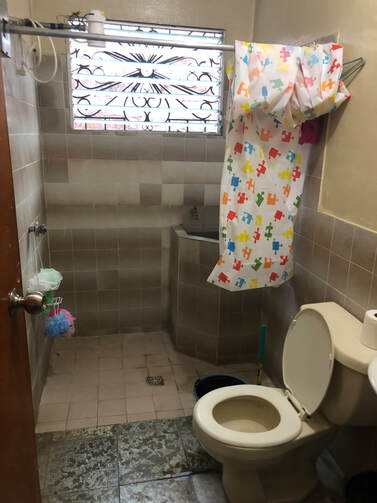 Hot water on demand and a flushing toilet is something I will always try to remember to be thankful for. The picture to the left is our bathroom in the pastoral house. It was actually really nice and much more than I had necessarily expected. But while it may look like a flushing toilet--it is not. All toilets in the pastoral house must be dump flushed, which is when you dump water into the toilet bowl and force gravity to do the flushing for you. I discovered the trick is no hesitation--dump that water like you mean it! The built in storage in the corner of the shower (behind the shower curtain) is the pila (pronounced: pee-la). Every place water may be needed has a pila (bathrooms, area where you do your dishes and laundry, etc.) because the pila holds water and only water. That way when the water is not running, you still have access to water. The pastoral house is fortunate to be connected to the city water so they often have running water. And when the city water is turned off, they also have a water tank that can be opened so guests can have running water even if there is no city water. Now, I tell you all of this to talk about the "hot" water. There is no hot water because there are no water heaters. Although, if you look closely at the picture, you may see the wires and white contraption around the shower head. In theory, once you turn on the shower, you can reach over and turn on the electrical box (shown in the close up picture below) and then you would potentially, possibly, with no guarantees, have warm water. I come from family of electricians and so I didn't even try to turn it on---you do not mix water and electricity in my world. Besides, it was so warm outside that the cool water felt good. Still, it is nice to be home with hot water and flushing toilets. I loved the food! I mentioned to someone that this was probably one of the easier trips I've made to a developing country with regard to food, amenities, and so on. As you saw above, we had water! But, oh my goodness, the food. The volunteers of the pastoral house and then everyone who hosted us in the community made sure we were well fed. I'm not usually one to take pictures of food but there were moments when I couldn't resist. Enjoy some of those pictures below! The beauty! El Salvador is a gorgeous country. From the mountains and volcano to the valleys and ocean--to look out over the country is to look out over beauty. And we were even there during the dry season, when not everything is in full bloom--imagine what it's like in the rainy season! When we went up to visit the cross, I ended up telling the group, "Just grab me and let me know when we need to leave, because I could sit up here all day." It was calm, sunny, and beautiful. And yet, as I mentioned in a previous post, in the midst of all that beauty, so much violence has taken place. I think I'm still trying to process and wrap my head around the atrocities I learned about while in El Salvador. It was a little strange to learn all of the context and history of the country, and then not talk about it with the people in more detail. To see a diploma for a member of our community dated 1983, knowing that she'd received that diploma a few years after the start of the civil war. What was that like for her? What did it take for her to get that in the middle of everything that was happening? It was also strange to have those experiences and then return to the United States, a country that supported many of the people who committed such violent acts. And, at the same time, to acknowledge that if I wasn't who I am (a young, white, woman who is a U.S. citizen) it would probably be more difficult for me to visit El Salvador in the first place. Is it possible to ever reconcile the facts (or should we even try to reconcile them) that the same things that have made/make it possible for the U.S. to support violence and oppression around the globe, are also that things that have made/make it possible for churches and other organizations to have a presence and relationship with people around the globe? This might help explain what I'm trying to say: The newsletter of the Presbyterian Peace Fellowship recently came in the mail and it had an excerpt of an article talking about accompaniment programs along the U.S./Mexico border and something the author said really struck me. She wrote, "We trust power dynamics we don't support in order to operate. We use the power dynamics we are actively working to undo--the supremacy of whiteness, U.S. exceptionalism, the vision of the United States as moral authority and enforcer to the globe--in order to achieve our goal of nonviolence." (You can read the full article here: https://wagingnonviolence.org/forusa/2019/11/navigating-dilemmas-unarmed-accompaniment-us-mexico-border/) I don't know the answers to those questions but I do know we at least need to be asking and discussing them, especially as we work to continue to be in relationship with each other. The narratives that prop up inequality can help us to live less troubled in a troubling world. But they also narrow our vision and strand "others" on the wrong side of the opportunity divide. When our comfort comes at their expense, that's a social cost that ultimately shortchanges everyone. And last, but certainly not least, the people. It was, and is, and will always be about the people and the relationships we build with them. I come home with so many stories of the people. Stories about their joys and sorrows, celebrations and difficulties. Stories about their lives. Stories I've been entrusted with so that I might share them with all of you. This ministry is about the people. Not about what we do or accomplish or build. But about presence and relationship and being. And it is oh so wonderful to be granted the privilege of witnessing and learning all of their stories.  I could talk and write about my time in El Salvador for quite awhile but this hits the highlights. If you do have other questions or want to learn more, let me know. Until next time... Jessica Actually...one more thing...I'll try and update the blog as we get updates from our community so you can continue to hear and learn their stories. Also, if you'd like to support the community of Alejandria or the Southwest Partnership's next trip to El Salvador, donations are always being accepted. You can donate online to the El Salvador fund by clicking the give now button below or if you prefer you may mail a check made out to First Presbyterian Church and memo it for El Salvador to: First Presbyterian Church 907 Grove Avenue Corning, IA 50841
0 Comments
Leave a Reply. |
AuthorFeb. 2020 Delegation ArchivesCategories |
Proudly powered by Weebly
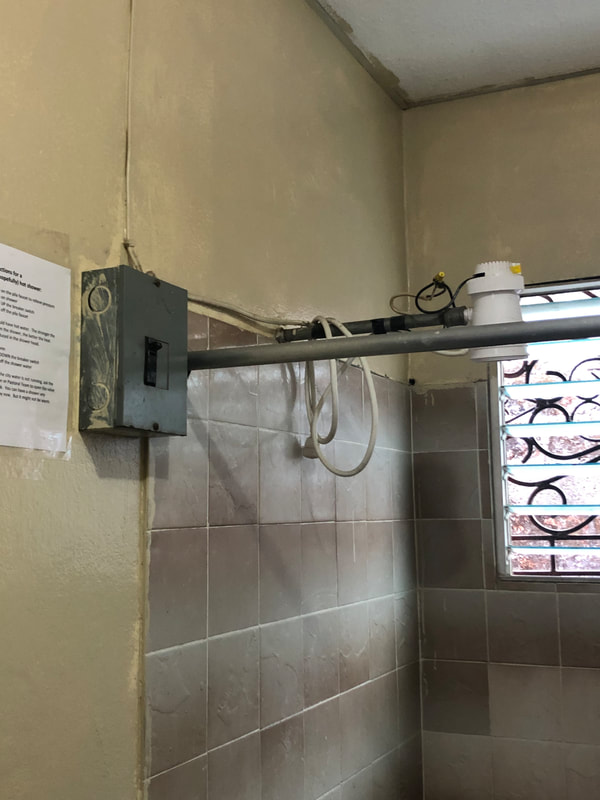
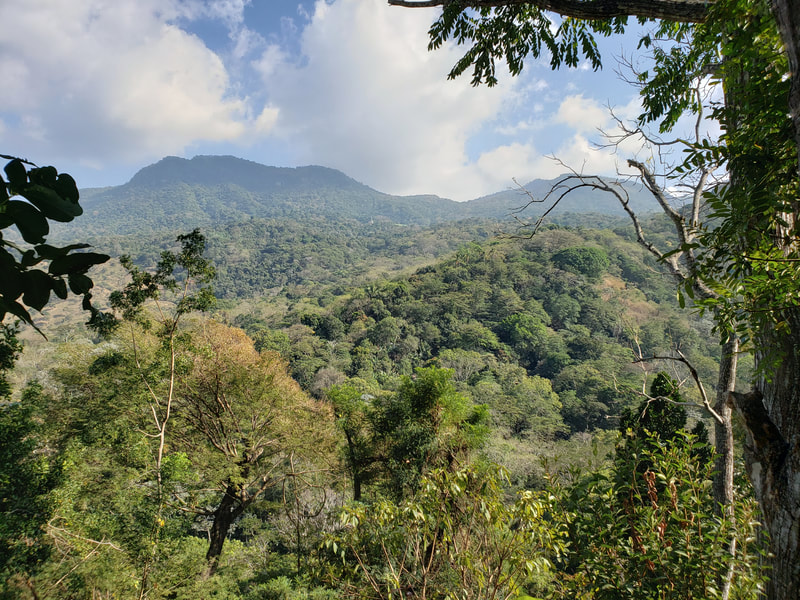
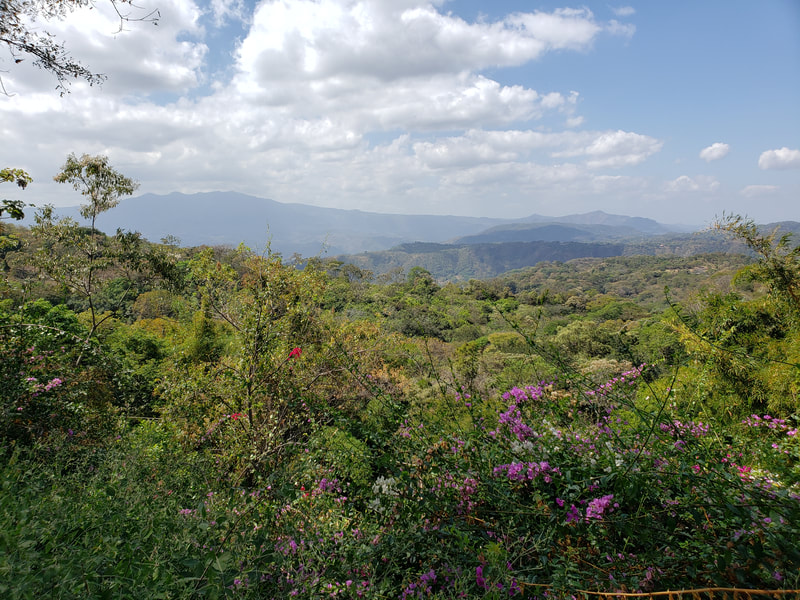
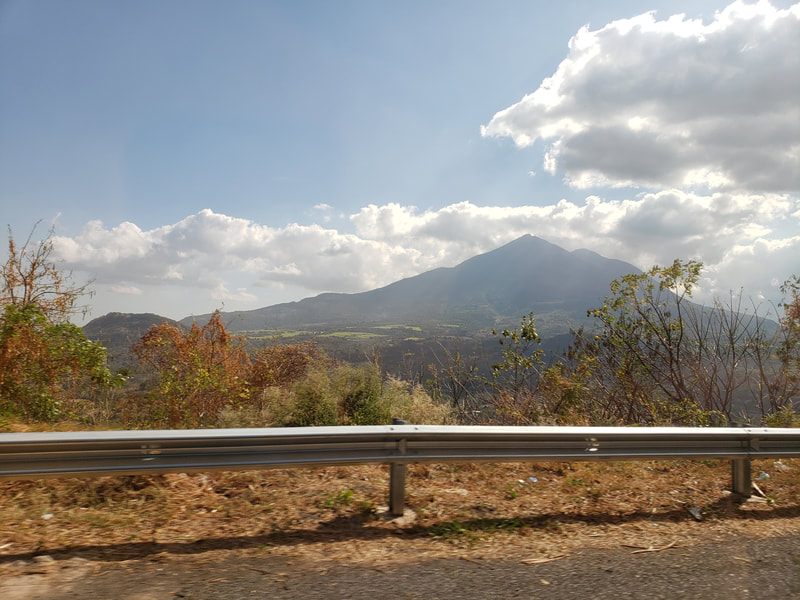
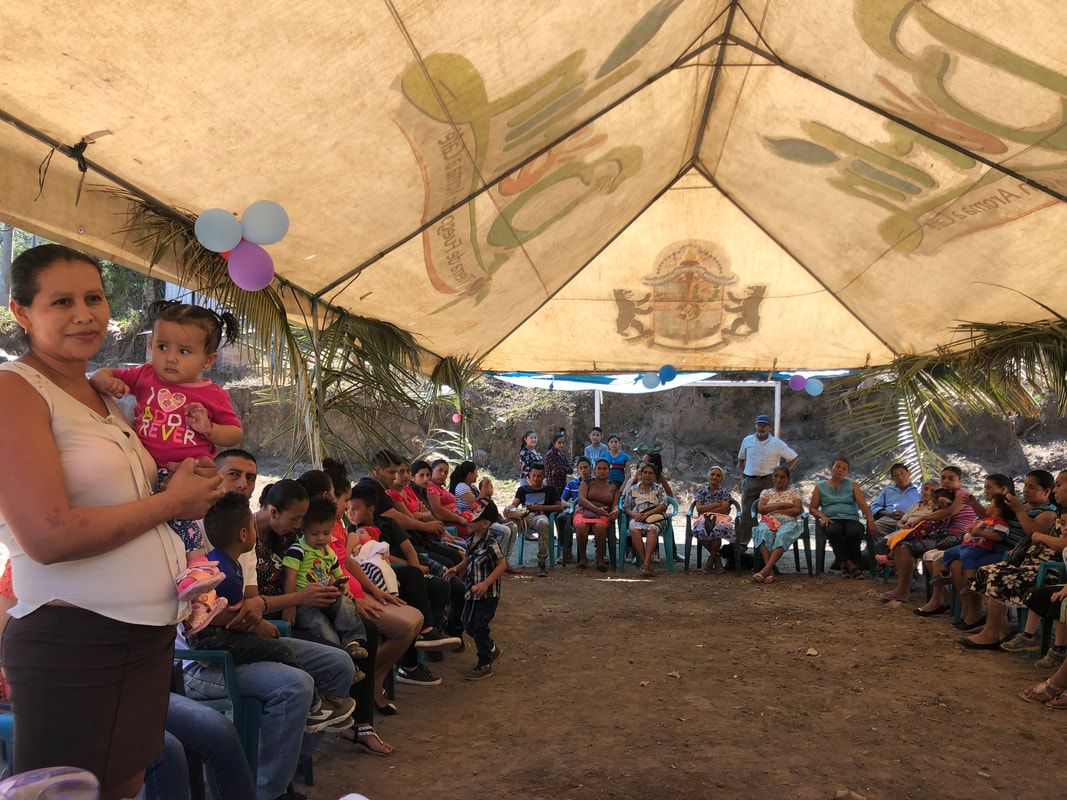
 RSS Feed
RSS Feed